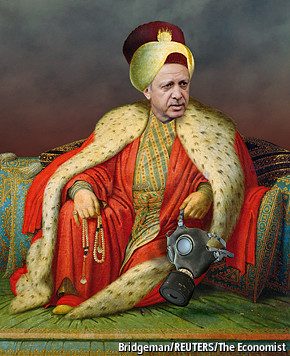When did the West lose Turkey?
 Today is a good day to talk about Turkey, whose president meets his Iranian and Russian counterparts in Iran (September 7, Friday).
Today is a good day to talk about Turkey, whose president meets his Iranian and Russian counterparts in Iran (September 7, Friday).
For starters, let’s consider the state of US-Turkey relations.
The US currently has a trade spat with China and Turkey but only one of them conducted talks. Guess which one? (Hint: It wasn’t Turkey).
Indeed, Turkey is defiantly at loggerheads with its ally of 70 years. Its pugnacious president is not letting the country’s economic crisis change his stated hostility to the United States.
This is a political problem that goes much beyond the personalities involved – Recep Tayyip Erdogan and Donald Trump. For, there is a structural crisis in US-Turkey relations and its relations with the West more generally. How did this happen?
Until a few years ago, Turkey seemed strongly welded to the West. Even after Mr Erdogan’s Islamist AKP formed the government, it seemed the reaffirmation of democracy rather than the reverse. That a party with a brand of moderate Islamist politics should be in charge of Turkey – and of its bid to join the European Union – seemed to underline the essential logic of the western model. That Mr Erdogan’s government continued to make efforts to join the EU seemed to prove that the European project is an irresistible force for good. It was in September 1963 that Turkey signed the so-called Ankara Agreement to open membership negotiations with the EU. Decades later, it still seemed to want the prize.
Until it didn’t.
At some point in the past few years, Turkey has convinced itself of the futility of to trying to become European.
We’re not talking about that moment in 2016 when there were calls in the European Parliament and by some European leaders for Turkey’s membership talks to be suspended.
In 2014, after Mr Erdogan assumed a sultan-like presidency, with overweening powers, it became clear that Turkey was veering away from the European script. Long suspecting it could never truly be ‘European’ or be credibly regarded as such, it has gone the other way. And it’s trying to say this is what it really, really wants.
The current crisis rests in that hollow – the dip that marks Turkish realisation of reality. That Mr Erdogan has filled it with bile is because of who he is.

